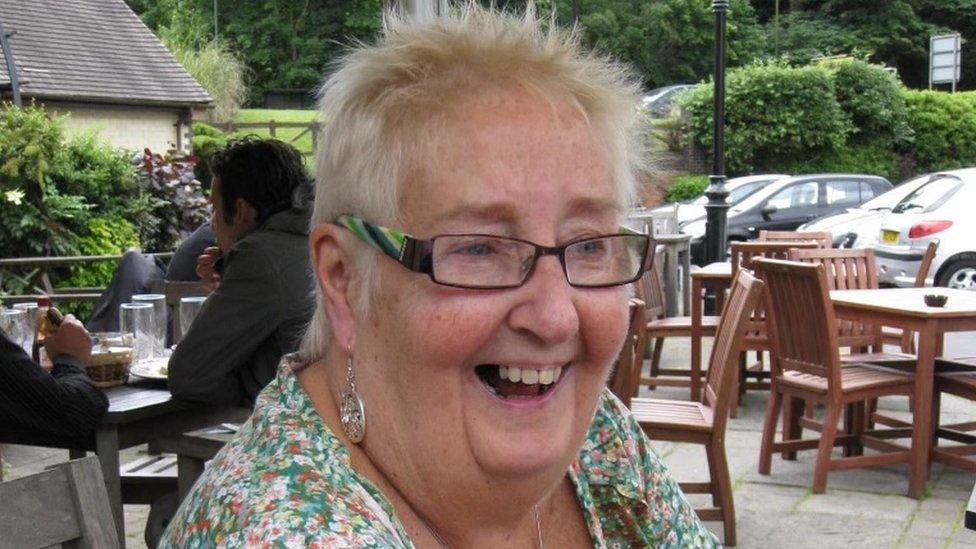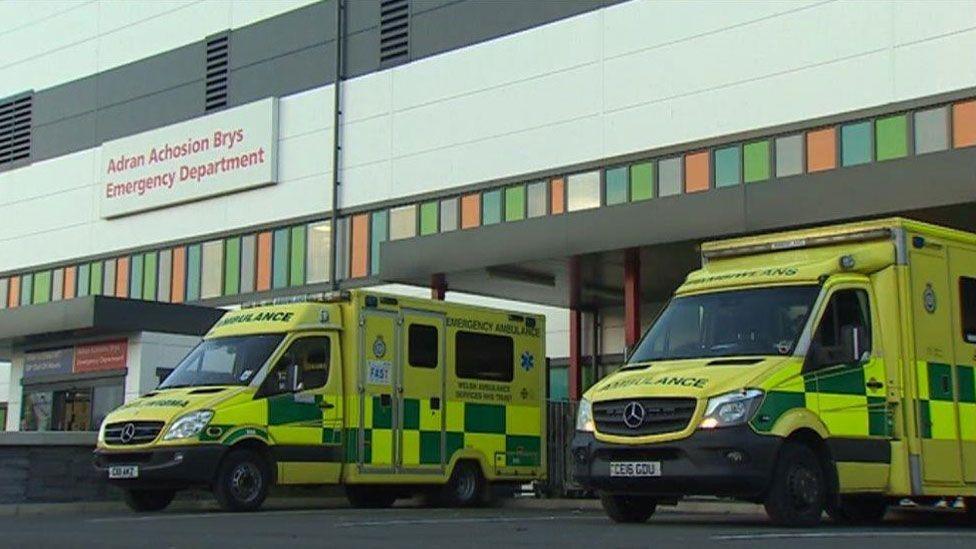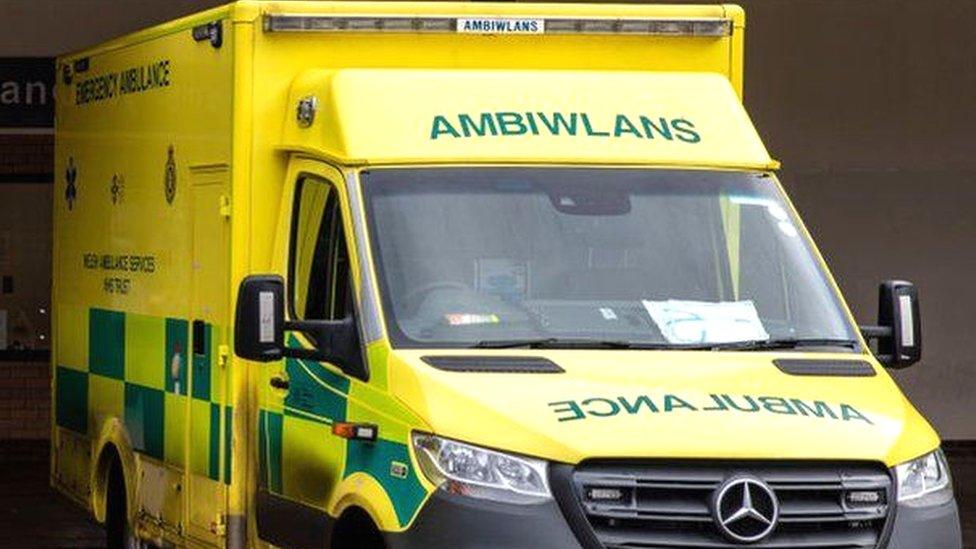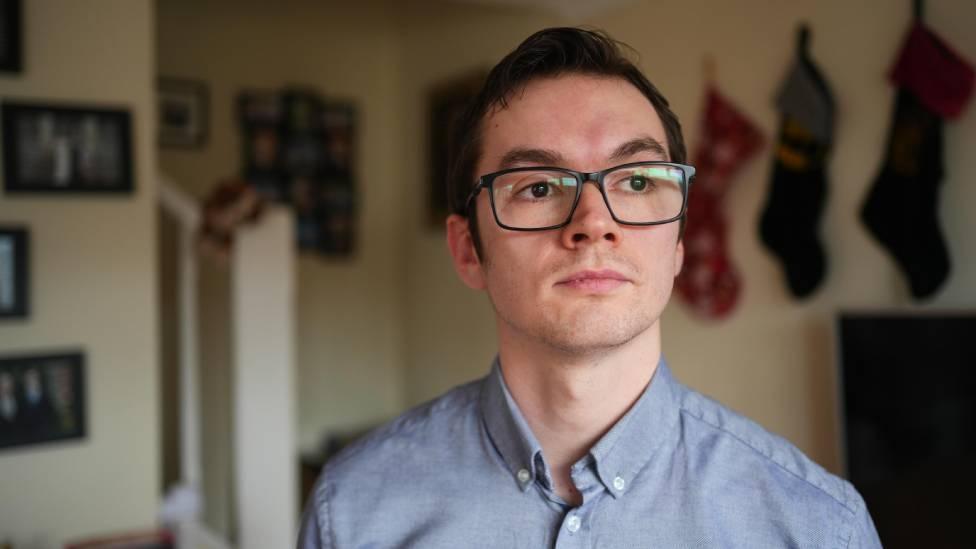Ambulance wait times: Woman died after 13-hour wait
- Published

Jean Frickel waited for more than 13 hours for an ambulance before she died
A woman waited for more than 13 hours for an ambulance before she died from heart failure, an inquest has heard.
Jean Frickel, 79, from Buckley, Flintshire, had a history of heart problems and had been experiencing breathlessness on 19 December 2022.
Her husband called 999 but was told there would be a significant delay due to extreme demand.
Coroner Kate Sutherland recorded a narrative conclusion and said she was worried this would continue happening.
"Despite assurances of change, the issue still remains and the multi-factoral issues involve not just the ambulance service but the health boards, the local authorities and social care," the assistant coroner for north Wales east and central said.
Although Ms Frickel's case was categorised as amber one, meaning a threat to life, the inquest heard 61 other amber one calls across north Wales were being dealt with.
A crew was on its way at about 08:00 the following morning when Mr Frickel dialled 999 again to say his wife was not breathing.
Paramedics arrived within five minutes of that call and confirmed she was dead.
Gillian Pleming from the Welsh Ambulance Service Trust (WAST) told the hearing at Ruthin Coroner's Court: "The initial wait for 13 hours is not the standard WAST want to apply to patients but due to significant handover delays at hospitals we were unable to get to Mrs Frickel sooner".
Betsi Cadwaladr health board consultant cardiologist Richard Cowell, who had treated Ms Frickel since 2004, said she may have survived "a few more weeks" had the ambulance arrived sooner, although not much longer.
Ms Frickel's daughter Helen Underhill said she knew her mother was "extremely poorly" but her death came "a little bit too soon".
The inquest heard that work was being done to improve the system, with handovers being treated as a priority between the ambulance service and the health boards as part of a wider system of changes.
Ms Sutherland said: "Due to the time it took for the ambulance to arrive, Jean Frickel was denied the opportunity for possible life-extending treatment at hospital."
Related topics
- Published20 April 2023

- Published6 June 2023

- Published4 January 2023
